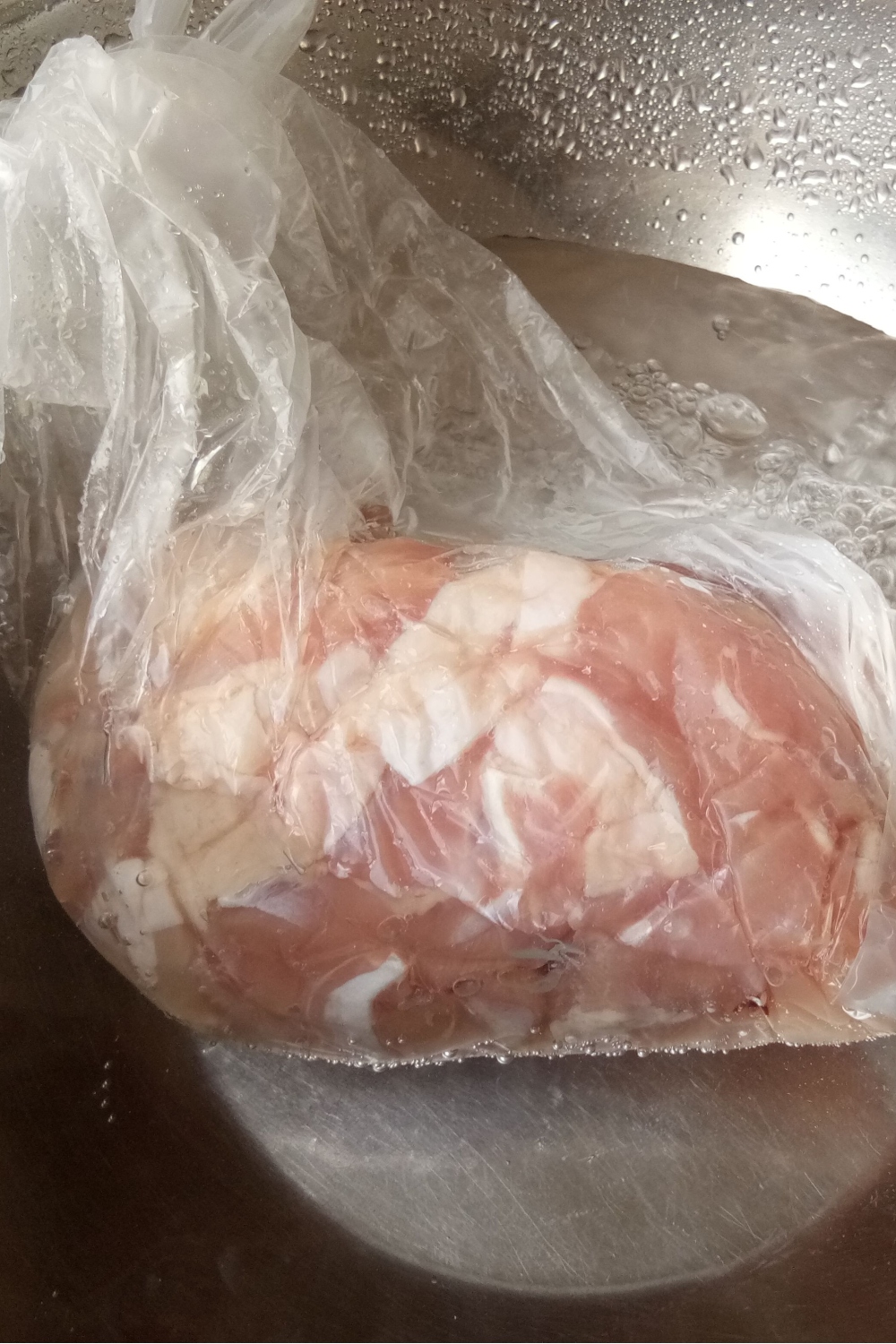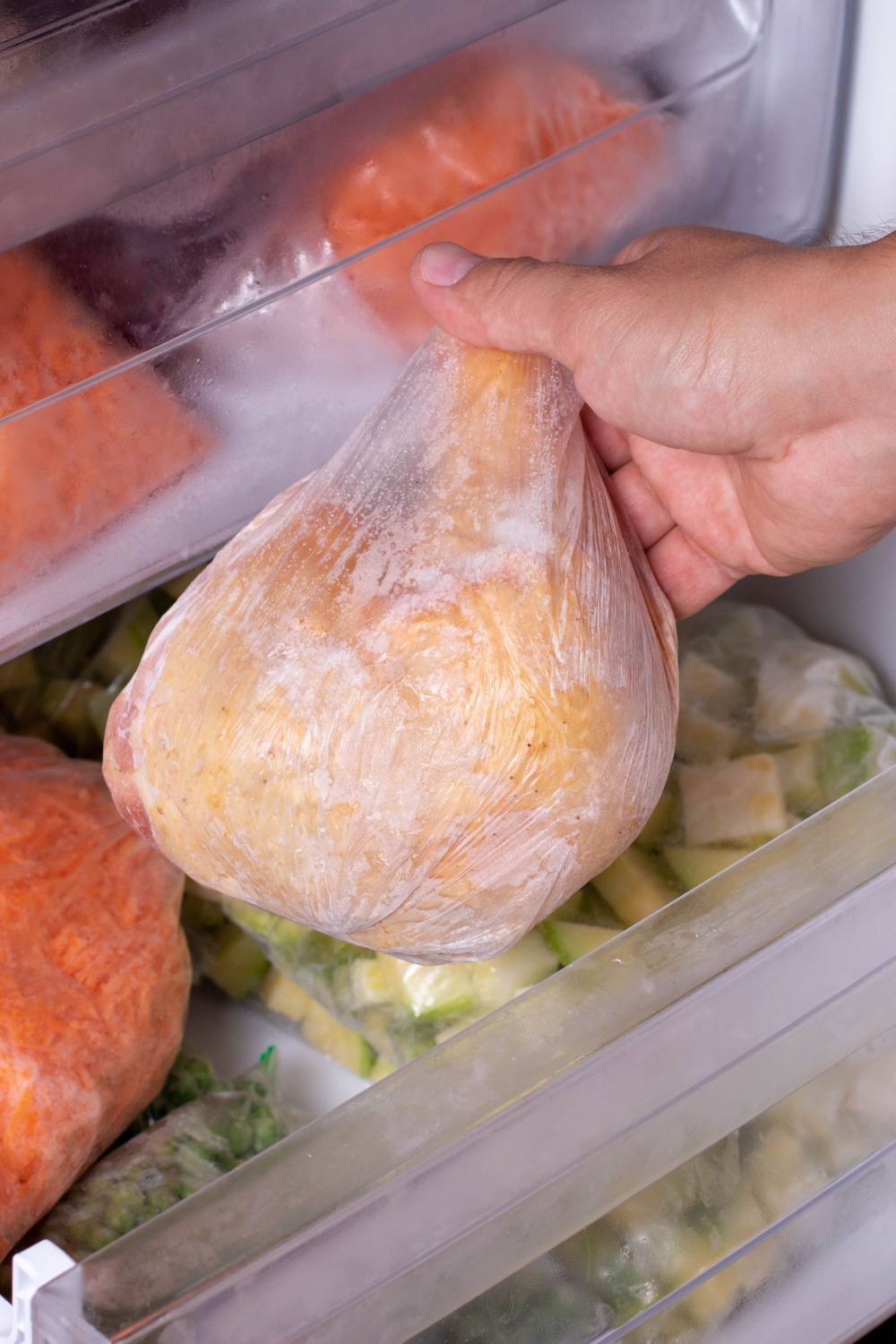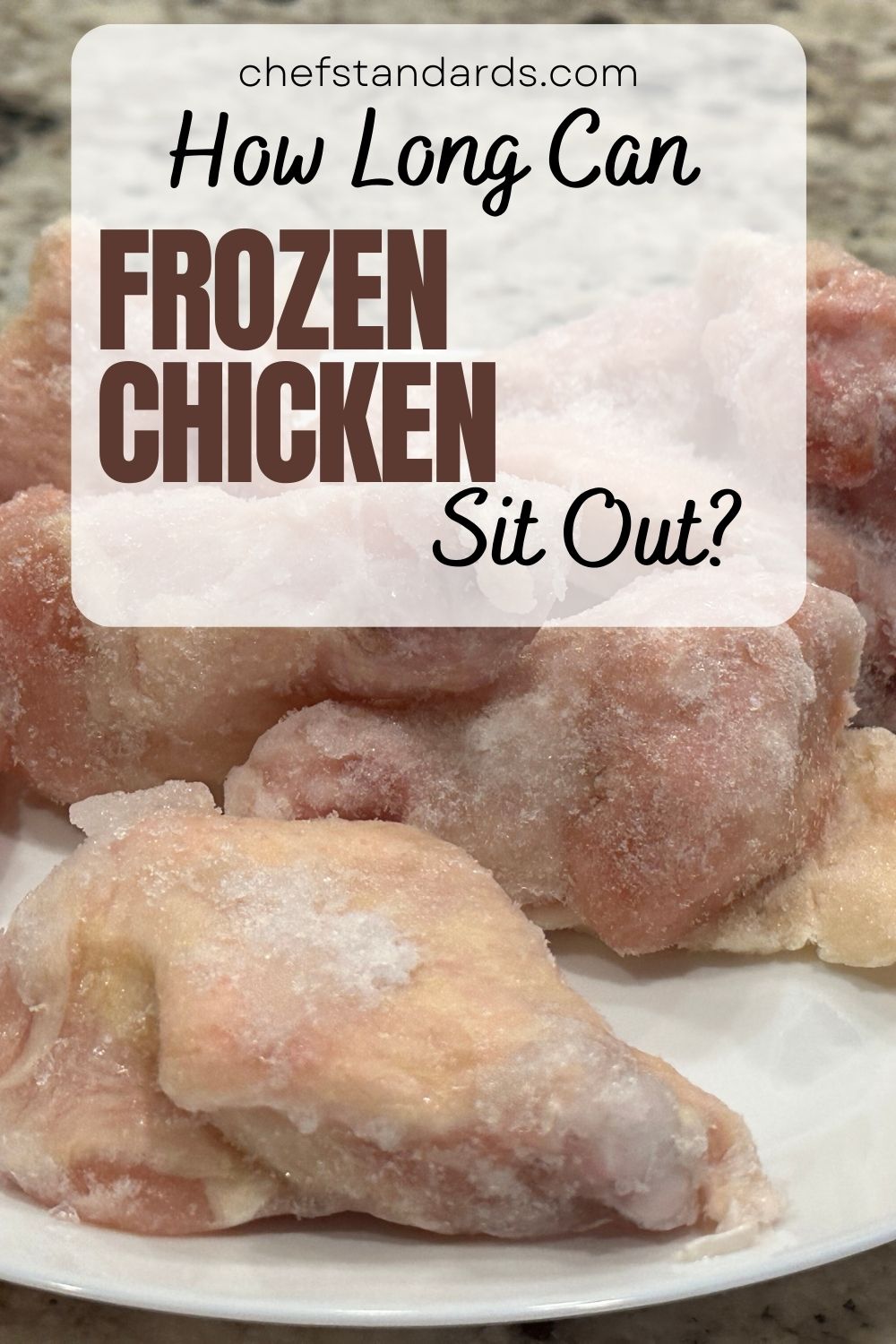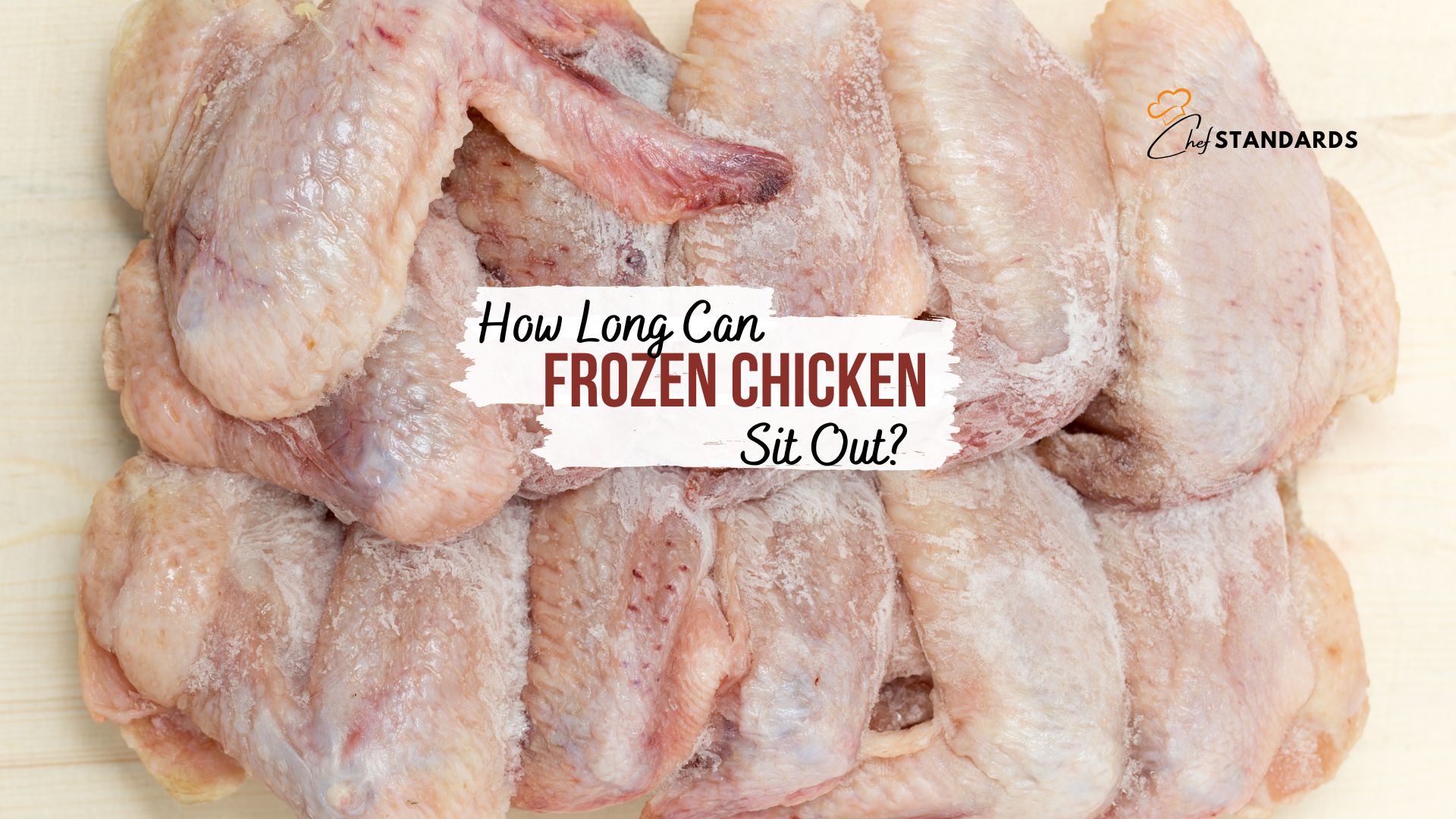Chicken, chicken, and chicken. It is one of those foods that you will find in almost all cuisines around the world. This is no surprise since it can be prepared in numerous ways and all of its parts are uniquely delicious.
Aside from that, chicken, if cooked properly, can also be very healthy since it is full of protein.
Chicken, however, is not a very shelf-stable food, just like any other type of meat. But the great thing about it is that you can always freeze it for a longer period of time, and it will retain its quality and freshness.
But what to do when you pull it out of the freezer? How long can frozen chicken sit out? Unfortunately, it is not very long, so it is important to know the exact time frame, and how to handle chicken properly once it is out of the freezer.
How Long Can You Let Frozen Chicken Sit At Room Temperature?

Chicken belongs to the group of foods that are not very shelf-stable, and every food from this group doesn’t like room temperature very much.
Namely, room temperature falls in the temperature danger zone (40–140°F) in which harmful bacteria tend to grow rapidly after a short period of time.
More precisely, in the case of chicken, those bacteria will start to multiply after just about 2 hours. So, leaving it outside beyond that time frame will be a great risk to your health. This also counts for fresh and cooked chicken.
FDA even recommends limiting that time to 1 hour to be 100% percent on the safe side – especially if you live in warmer areas where the temperature is above 90°F.
What If You Let Uncooked Frozen Chicken Sit Out Overnight?
Many people tend to ask about leaving uncooked frozen chicken at room temperature overnight.
This can be very dangerous because, after 2 hours, harmful bacteria start to multiply.
Some people believe that cooking or heating might kill those bacteria and solve the problem.
Although temperatures above 140°F are able to destroy them, after that time frame those bacteria have already secreted toxins that can not be destroyed by simple heating.
So, the answer to the question of leaving uncooked frozen chicken overnight is a big NO!
Can You Thaw Frozen Chicken At Room Temperature?

No, I would never recommend this because it is just too risky. Although it won’t always be dangerous, the risk is just too high.
Namely, less than 2 hours is just not enough for the chicken to defrost properly and you already know what can happen if you leave it over that time frame.
Thawing chicken at room temperature is especially risky because the outer layers of the chicken may thaw while the inner parts remain frozen, creating an ideal environment for bacteria to grow.
This can lead to uneven cooking and increase the risk of food poisoning.
Then How To Thaw It Properly?
Fortunately, there are effective and safer ways to properly defrost your frozen chicken. Let’s look at three main ways to do that.
In The Fridge
This is, by far, the best method and the one that I always use to defrost my frozen chicken parts, and it has never disappointed me.
This is because the temperature in the fridge is stable and under 40°F, which means it is out of the temperature danger zone.
However, you have to do this correctly in order for it to work. When transferring frozen chicken from the freezer to the fridge, put the package on a plate or in a container on the bottom shelf.
This way, you will avoid dripping those juices on the other foods in the fridge. Aside from that, if something goes wrong with your chicken, other foods in the fridge will be protected. In this case, leak-proof containers might be a great solution.
When it comes to the time of defrosting, the chicken should stay in the fridge for at least 24 hours. However, if the parts are thicker or if you are defrosting a whole chicken, there is a high chance that you will have to let it stay in the fridge for up to 2 days.
One more thing. If you want to marinate frozen chicken, you can do that as well. Your frozen meat will marinate and defrost at the same time in the fridge, saving you precious time.
Also, if you are dealing with frozen cooked chicken, the best way to defrost it is in the refrigerator.
See also: How Long Does Rotisserie Chicken Last In The Fridge?
In Cold Water

The cold water method is also a good one because it is safe and doesn’t take a lot of time. However, this method requires a bit more work from your side.
Namely, you must pull the package with frozen chicken from the freezer, put it in a container, and pour cold water over it.
After that, you have to let it stay in the cold water for about 30 minutes, after which you must change the water, as suggested by the USDA. Another 30 minutes will be enough for the chicken to properly thaw.
So, in general, this method will take about 1 hour of your precious time.
I also have to emphasize that it is important to avoid thawing the chicken in warm or hot water because this can put a big risk of spoilage from harmful bacteria.
In The Microwave
Out of all defrosting methods, this is my least favorite one. Although the process is very fast, the quality of defrosting chicken in the microwave is the lowest out of all three methods.
Nonetheless, you can use this method if you are short on time, but you need to follow these steps:
1. Pull your frozen chicken out of the freezer-safe bag and transfer it to a microwave-safe container or packaging.
2. Most microwaves have a defrost setting specifically designed for thawing frozen foods, so set it to the defrost setting. If your microwave doesn’t have it, set it to the lowest power level.
3. Put the frozen chicken on a microwave-safe plate or dish. For even thawing, spread the chicken pieces out and avoid large clumps.
4. Stert the microwaving process and turn the chicken every 5 minutes.
5. If you see that some pieces are properly defrosted, pull them out of the microwave, but leave the rest of the frozen pieces for an additional interval.
6. Remove all the chicken pieces from the microwave and cook immediately.
What To Do Next?
Well, to some extent, this depends on the thawing method. Whatever method you use, it is always best to cook your chicken immediately.
However, in the case of cold water or using the microwave, that is especially important. If you thaw it in the fridge, you should rinse it before cooking to remove any blood or excess ice.
After that, you should cook it within 2 hours. My recommendation is to do that within 1 hour to stay on the safe side.
I also have to emphasize that it is important that your chicken reaches an internal temperature of 165°F because that is a minimum internal temperature for safety when reheating leftovers.
If you don’t want to consume it right away after cooking, you can put it in the fridge again and it will stay safe for about 3 days. Just don’t refreeze it because you’ll be risking spoilage.
How To Recognize Spoiled Frozen Chicken?

Even if you know the right procedure for handling frozen chicken, mistakes can always happen, and they can lead to spoilage. It is therefore important to know how to recognize chicken that is not for consumption anymore.
Here are the signs:
• Off Odor: If the frozen chicken emits a strong, foul, or sour smell, it may be an indication that it has spoiled. Fresh chicken should not have a pungent or off-putting odor.
• Unusual Texture: If the frozen chicken appears slimy, mushy, or has a different texture, it may not be safe to consume.
• Discoloration: If you notice significant changes in the color of the frozen chicken, such as darkening or a greenish tinge, it may be a sign of spoilage.
• Freezer Burn: When freezer burn happens, the chicken will still be safe to eat, but the quality and taste will be much lower.
It appears as grayish-white spots or patches on the surface of the chicken and can cause the meat to become dry and tough. If you notice this, you will have to think about using that chicken.
• Ice Crystals: While small ice crystals are normal in frozen chicken, large and jagged ice crystals could indicate that the chicken has been thawed and refrozen, which may affect its quality and safety.• Packaging Damage: If you notice that the chicken’s packaging is torn, damaged, or compromised in any way, there is a higher chance of contamination and spoilage.


